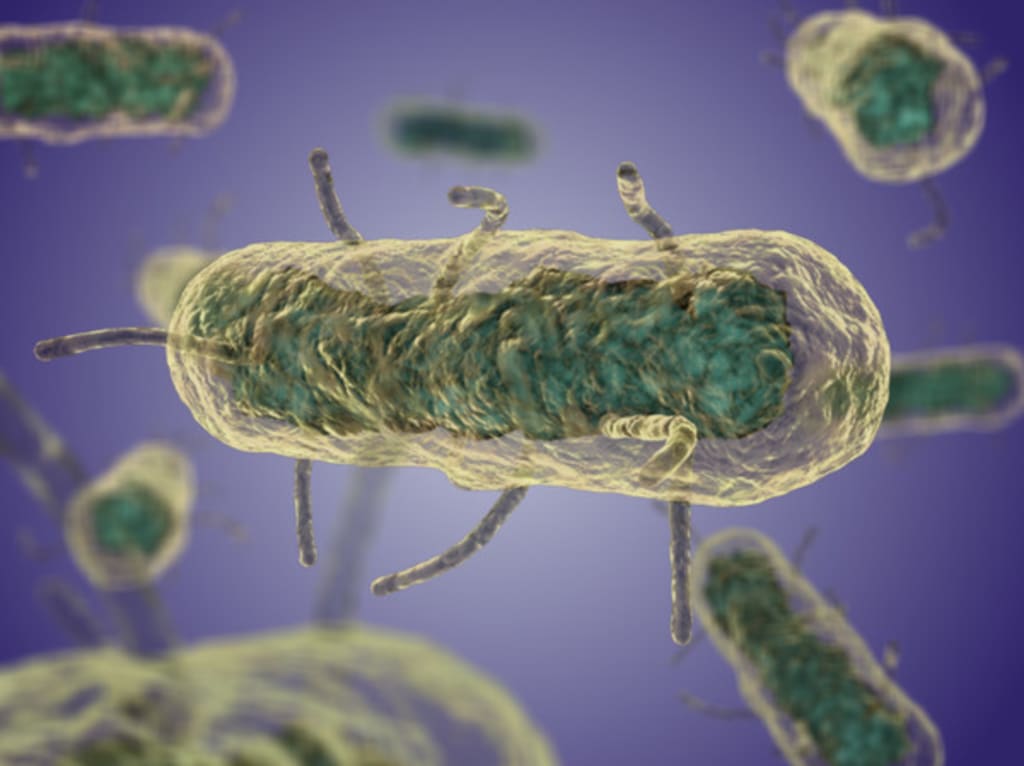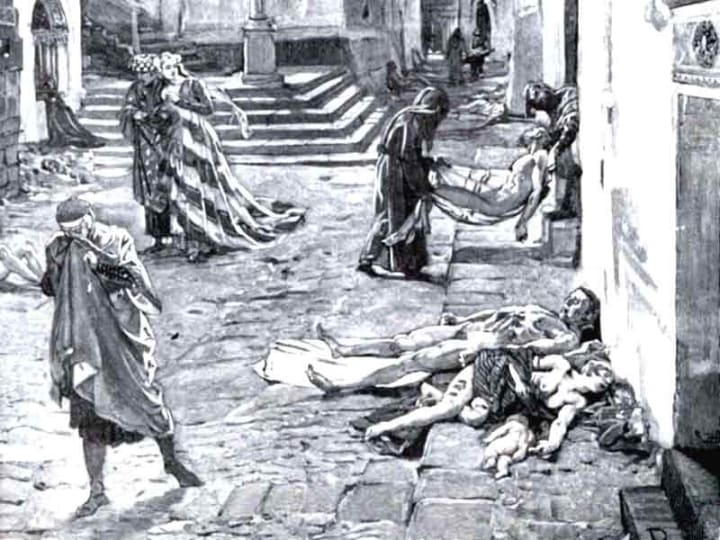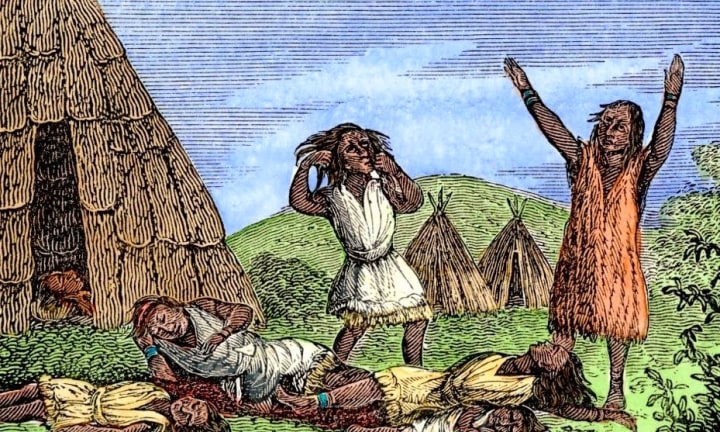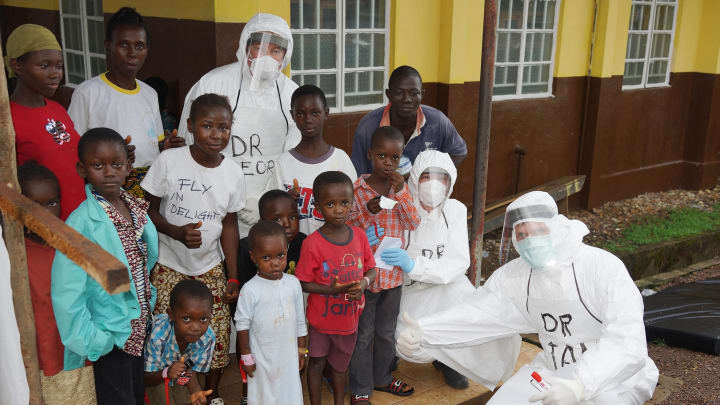How Disease Shapes Human History
The impact of diseases on our past, present and future

I'm going to talk about a subject that has become revitalized in the past few years and that is the impact that disease has on us as humans. Most people do things to prevent the spread of diseases in their day-to-day life as second nature because of the effect it's had on us in the past. Such as washing their hands or sneezing into their elbow. However, for the majority of people in first-world countries, it doesn't weigh on our mind 24/7 as it does in say, less developed countries. In modern life, with all of our current medicine, we don't seem to feel that a tiny micro-organism can be our undoing as it could have in ancient times but perhaps we'd better think again.
While we do live in a time in human history where communicable diseases are not as big of an issue aside from bird flu, swine flu, ebola, SARS, HIV AIDS, antibiotic resistant bacteria, need I go on? But when it comes to the past, history doesn't focus much on disease aside from the great dying and the black death because it's not history that we made. We as humans like to study history as it relates to us. The actions we did and the effect of those actions. However, disease is not something that can be controlled by humans, yet can have drastic effects on our existence.
In olden times most people thought of disease as a form of divine intervention brought on by dissatisfied deities. As well, humans did not have the medical knowledge to understand diseases and therefore tended not to write about it and those who did didn't do a very good job. This leaves us to interpret first-hand accounts and speculate on what really happened.
Disease has been with humans as long as there have been humans. Humans first emerged in tropical regions in Africa where micro parasites run rampant. It's fair to assume that these micro parasites had a great deal to do with population control in those times. It wasn't until humans started to move out of Africa into areas with less prevalent natural diseases that we start to see a boom in population size. This began our modern concept of civilization. Humans moved towards rivers and developed settlements and agriculture. While we escaped the tropical diseases of Africa we became host to a whole new kind of disease problem.
As cities grew, population density increased leading to a breeding ground for epidemics. The stagnant water often used in irrigation gave rise to a plethora of disease carrying microorganisms. As well, they were exposed to the number of diseases that can be transmitted via livestock. As civilizations began to trade, epidemics quickly escalated to pandemics. These are the things that people tended to write about. In many historical books, we find tellings of pandemics that sweep across nations. Aside from trade, you'll find that there is a significant tie between wars and pandemics. Soldiers travel, bringing diseases with them. That coupled with food shortages and civilian displacements left many people vulnerable to getting sick. However, trade was still the biggest contributor to pandemics.

It was trading that brought about probably the most famous outbreak of all time; the black death. The black death was a plague that was brought to England in the mid 14th century in fleas that lived in rats' fur. It began in China and traveled west along the caravan routes, eventually making its way onto Mediterranean trade ships. The black death was the first plague to wipe out a significant portion of the population. Estimates are that around 1/3 of the population of Europe was killed by the plague.
The black death obviously affected a lot of individual people's lives but it also had an effect on global history. The plague took place during Europe's dark ages. There is some speculation that the black death kick started Europes' economy. Workers who worked with their hands requested 3 times the compensation for goods and services which were in short supply. So the plague may not have been that terrible for workers, at least if you survived, but more notably the plague probably changed European Christianity.
When faced with random and wide spread death, some people abandoned the church in favour of hedonism. The ineffectiveness of priests to stop the crisis probably lead to more anti-clericalism and a more willingness to accept the eventual protestant reformation.
The plague also brought about new construction techniques to combat the spread of the disease. People began building houses out of brick instead of wood and did away with the thatched roofs that rats liked to live in favour of tiled roofs. These new dwellings created a better barrier between humans and disease infested rodents.

While the black death is often thought of as the worst plague in human history, it is beat out by the great dying as far as pure devastation. The great dying was the name given to the break out of diseases accompanied by the Columbian settlers coming to North America. Evidence shows that pre-Columbian America was relatively disease free prior to the colonization by the Europeans. The diseases quickly swept through the ill-prepared native populations killing as many as 90%. At the same time as this pandemic took the Americas, the European population was growing, putting further pressure to colonize the Americas, Asia, Africa and eventually Australia. It may not be the main, but it's certainly a significant determinant for Europe's dominance in the modern era
Humans continued to progress to develop more modern medical advancements to fight infection. Immunizations have a big role to play in our current resistance to viral infections. The development of antibiotics in the early 20th century have proven incredibly effective against bacterial infections such as bubonic plague and tuberculosis. Some vaccines have proved so effective that we've actually been able to eliminate certain diseases from the human population. Such is the case with small pox.

Yet infectious diseases continue to be a leading killer in many places all over the world and there are still deadly outbreaks of diseases like cholera all the time. And although antibiotics have been widely available on a mass scale for under 100 years, we've already begun to see the appearance of antibiotic resistant strains of some bacteria leading to these diseases making a comeback. That, in combination with the anti-vaccination trend that's been sweeping the world and diseases such as HIV aids that we still haven't been able to fully prevent or cure show us that diseases are still continuing to shape us as human beings. We adapt and modify our behaviour to suit how diseases and infections are being transmitted these days.
We will inevitably encounter another pandemic but who knows whether it will be drug resistant smallpox or a new strain of the plague or even a disease we've never seen before. Only time will tell but humans will continue to adapt as necessary to survive such disasters.







Comments
There are no comments for this story
Be the first to respond and start the conversation.